December 1, 2017
Residents Do the Math as VAT Nears
A majority of residents across the UAE are taking a closer look at their spending and consumer habits, as the date for the implementation of the value added tax (VAT) draws closer.
Many have determined that they need to implement some cost-cutting measures, especially when it comes to spending on luxury items, new data has revealed. A survey by Addaera Research & Polls Centre found that 69 per cent of respondents in Dubai will change their purchasing habits.
Another survey by the Food and Beverage Manufacturing Business Group (FBMG), in collaboration with Nielsen, found that over 92 per cent of consumers are well-informed about the upcoming introduction of VAT in the UAE, and recognise the need to revisit some of their usual spending decisions.
“In a week’s time, VAT will be implemented, and as this is a consumption tax, I am sure that people will think twice before consuming discretionary unhealthy items like cigarettes and energy drinks,” said Naveen Sharma, chairman of the Institute of Chartered Accountants of India – UAE (Dubai) Chapter.
“Usually, whenever there is a change in tax, people take healthy decisions. However, I believe that after VAT, people will revisit their spending habits and they will be more wise on where they are putting their money.”
Respondents in the FBMG survey generally agreed that the new tax will decrease their consumption for some categories such as soft drinks, where 68 per cent claimed they will consume less of the product going forward; followed by chocolates at 52.1 per cent; ice cream at 47.2 per cent; and frozen foods at 41.7 per cent.
However, participants also expected their consumption of other categories to increase as the tax goes into effect: 21.7 per cent anticipated they will be drinking more water (though 70 per cent didn’t expect VAT to affect their water intake at all), while 18 per cent said they will consume more healthy foods, 17.8 per cent said the same of fruits and vegetables and 17.7 per cent for fish and seafood.
In addition, Addaera’s survey found that the most affected goods, according to respondents, were food at 36.9 per cent, clothes at 11.7 per cent, luxury products at 11.7 per cent, electronics at 10.4 per cent, vehicles and transportation at eight per cent, rents at 3.8 per cent, and tobacco at 3.2 per cent. The survey also indicated that 94.2 per cent of pollers believed that the VAT will push living costs upward in the UAE. Around 68.7 per cent of residents said that they will reconsider their decision to continue living in the UAE after the tax application.
Highlighting the results of the survey, Hana Lootah, CEO of Addaera Research & Polls Centre, said that a significant tendency to cut expenses to adapt to the upcoming conditions was identified; reflecting a potential dampening effect on the purchasing power.
“VAT introduction may also have a negative impact on the UAE’s global position as one of the best destinations to live in with two third of residents revealed they will reconsider their stay in the country after VAT,” Lootah explained.
“The VAT is a consumption tax and inflation will increase,” added Sharma. “In my opinion, the standard rate of tax is five per cent and the businesses will swallow half, while the remaining half will pass on to the consumers. It is not much considering the fact that the money collected by the government will be reinvested for the improvement of infrastructure that will increase the business. However, for a short period of time, inflation will go up to 2-2.5 per cent.”
“The increase in inflation will normalise after the initial rise of 1.5 per cent to two per cent in the introductory year. However, the impact on consumer demand could possibly change the scenario, which means the real impact might be negligible post the introductory period.”
https://www.khaleejtimes.com/business/vat-in-uae/residents-do-the-math-at-vat-nears






